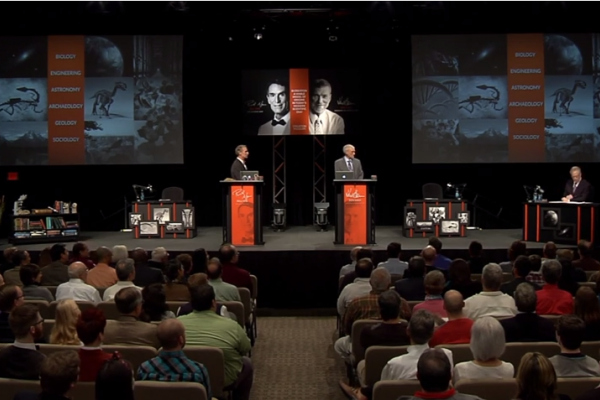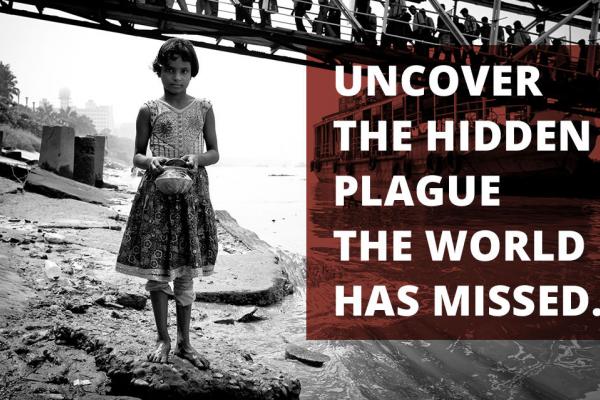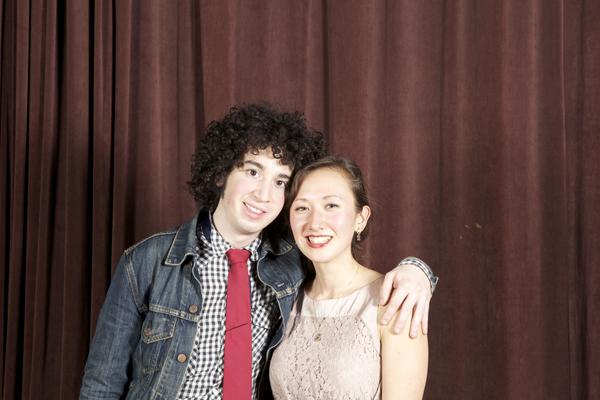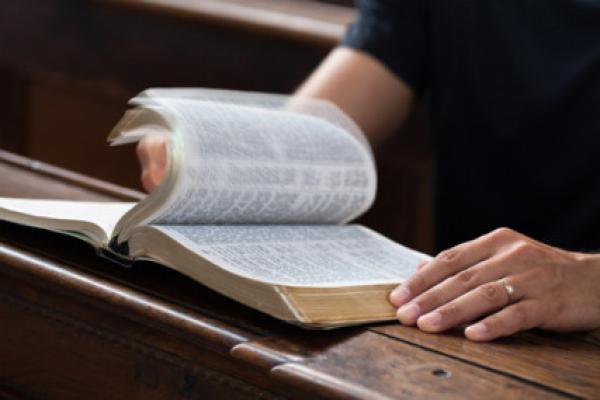There was a moment during last week’s “debate” between Bill Nye the Science Guy and young-earth creationist Ken Ham that I think was more telling than any other.
During the Q&A session, Ham was asked what seemed to me to be a very simple question: “Hypothetically, if evidence existed that caused you to admit that the universe is older than 10,000 years and creation did not occur in six days, would you still believe in God, and the historical Jesus of Nazareth, and that Jesus was the son of God?”
What was most telling was not really what Ham said, as much as what he didn’t say, which was “Yes.”
In my mind, this question was a softball pitch. It couldn’t possibly be easier. And Ham was given two minutes to answer the thing? His response should have taken all of two seconds: “Yes.”
“I knew from the beginning that as a woman, an older woman, in a group of ministers who are accustomed to having women largely as supporters, there was no place for me to come into a leadership role. The competition wasn’t worth it.”
These are the words Ella Baker spoke regarding her decision to leave the Southern Christian Leadership Conference, SCLC, in 1958. Baker was one of the core founders of this organization. Yet, her male colleagues only recognized her competence and expertise to a limit. The “preacher’s club” selected Rev. Wyatt Tee Walker to replace Baker at the helm. Due to this prevailing patriarchy and what she deemed a focus on “mass rallies and grand exhortations by ministers without follow-up,” Baker left the SCLC. She chose to go her own womanly way.
We make decisions every day. Life’s twenty-four-hour cycle is filled with choices. We contemplate what we will wear. We ponder breakfast selections. Will it be the bagel with cream cheese or a caramel macchiato with soy? Should I watch Mad Men, Scandal, or go to bed early? Do I call or just send a text or email? Our daily lives are replete with routine choices.
However, beyond these commonplace decisions are those personal, communal, and national selections that will have an impact on our lives years from now.
Bob Jones University has fired an independent firm hired to investigate sex abuse reports just one month before the group planned to release its 13-month review findings.
The university had contracted with Lynchburg, Va.-based GRACE (Godly Response to Abuse in the Christian Environment) in November 2012.
“Over the last several months, we grew concerned about how GRACE was pursuing our objectives, and on Jan. 27, 2014, BJU terminated its contract with GRACE,” the university said in a press release. “It is BJU’s intention to resolve its differences with GRACE, and we are disappointed a resolution could not be reached before our differences were made public.”
When we think about the poor of the world our thoughts often drift toward starvation, unsafe water, malaria, and lack of medical attention. These thoughts will likely move us to taking action in a variety of ways. We give farming skills and equipment, we drill wells, we provide mosquito netting, and doctors volunteer their time to help treat the poor of the world.
All of these things can be helpful and beneficial but there is a deeper, much darker, problem below the surface of poverty. The problem is violence. Gary Haugen, the founder of International Justice Mission, recently released a new book titled The Locust Effect, which documents the plight of the poor in developing countries.
What benefit is it to provide schooling for girls that refuse to attend because many of them get raped when they attend? How can a micro-loan help a father provide for his family when he gets thrown into prison for a crime he didn't commit and can't afford to bribe the law enforcement? How is a mother supposed to care for her children when her home is taken away from her by her husband's family once he dies?
Editor’s note: Judilee King, 22, and Glenn Haider, 23, both grew up in the Unification Church, which is perhaps best known for its arranged marriages and mass wedding ceremonies. The couple will be married at a mass religious wedding in South Korea on Feb. 12. Judilee, who grew up in Nova Scotia, plans to enroll in college in the fall. Glenn, who grew up in New Jersey, is a student at Montclair State University.
Glenn Haider and I first met on Facebook. I was attending community college in Seattle and he was in New Jersey, and while we had a lot of mutual friends through our church, we had never met. His status updates kept popping up on my news feed and one day, mostly out of boredom, I decided to chat him up to see what he was like.
We hit it off and started talking more. Eventually he asked for my number and we started texting. I thought of it as a friendship. We kept talking for a couple of weeks, until it got to a point where I was wondering if he was thinking I wanted something more than a friendship.
Three out of 10 British children have next to no understanding of the Bible and their parents aren’t that knowledgeable, either.
A survey released Friday by the Bible Society, founded in 1804 to spread knowledge about the Scriptures, said most boys and girls aged 8 to 15 years old did not know that Adam and Eve, Noah’s Ark, or Jesus’ birth were rooted in the Bible.
More than a third of the 800 children surveyed did not know that David and Goliath and the story of the Good Samaritan were Bible tales.
One sort of Christian believes taking Eucharist weekly saves her. Another Christian believes his confession of Jesus Christ as Lord saves him. Still another looks to his Baptism. Another to her participation in the body of Christ. One to his repentance. And another to her care for the sick, the hungry, the prisoner, and the poor.
We elevate one belief or practice over another, then divide ourselves as Christ followers by the priority we set when, in fact, all of these are taught as saving by Christ, who alone is our salvation.
Christ saves me, not the accuracy and purity of my beliefs. Christ saves me, not my works. Christ saves me, not the measure of my adherence to a doctrine or practice.
When all is said and done, many Christians tend to look to their habits, their faith, and their perseverance when it comes to salvation rather than to the work, belief, and faithfulness of Christ in us, over us, under us, and through us.






